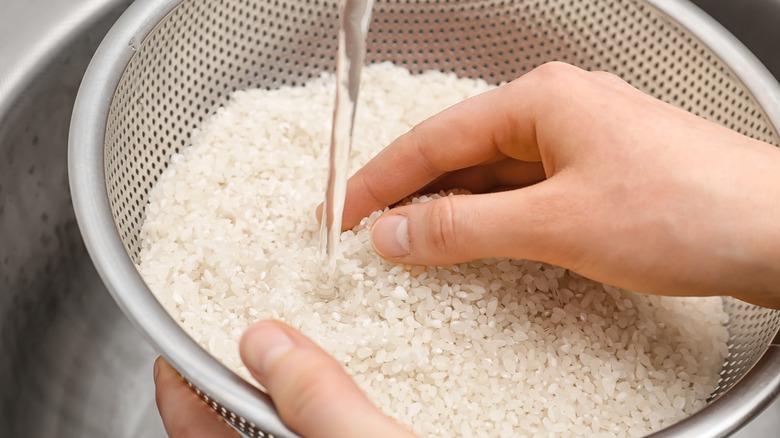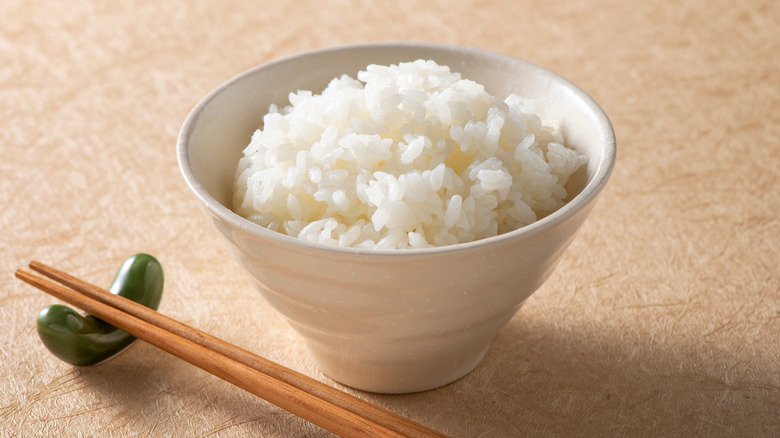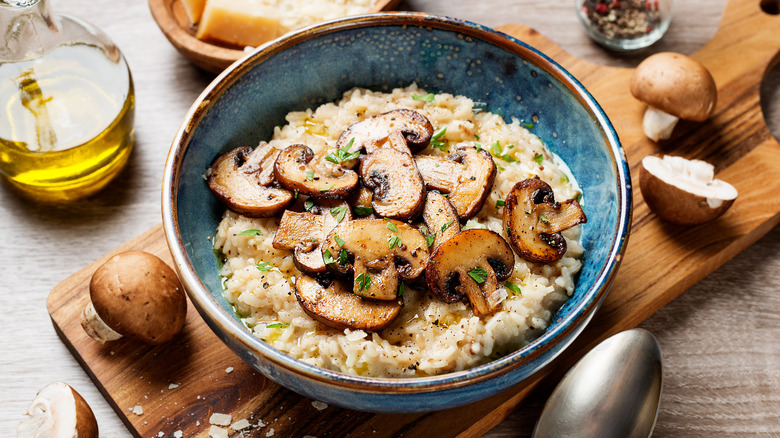Do You Actually Need To Rinse Rice Before Cooking It?
A cup or two of rice makes a perfect base for any number of quick and easy meals, like deconstructed sushi bowls, rice and beans, and much more. However, for many, the speediness of this food is hindered by the inclusion of a certain step: rinsing the rice. Thoroughly rinsing a few servings of rice can be rather time-consuming, which leads some to skip this step entirely. But for others, rinsing rice is non-negotiable, no matter how eager they are to start cooking. It is generally agreed that rinsing your rice is necessary, with very few exceptions, but to understand when one might skip it or why, we need to understand why folks do it in the first place.
One of the most pressing reasons to wash your rice is to make sure it's clean before you consume it. Like any other crop, rice may pick up dirt, grime, and even bugs during its journey from the rice paddies to your kitchen. Washing off your rice, just as you would fresh produce, helps to ensure nothing unsavory ends up in your finished recipe. Rinsing your rice also removes the starch that builds up and forms dust as the rice tumbles around during processing and transport. Whether or not you remove this starch will have a huge effect on the rice's texture once it's cooked.
Rinsing rice makes it fluffier
Removing this starch is the key to fluffy rice. If you don't rinse your rice well, the lingering starch may cause the kernels to clump together, form an unpleasant bite, and become too sticky to easily incorporate with other ingredients. Pretty much any type of rice you buy will have excess starch on its surface, so the rule of rinsing your rice goes for any variety. Even short-grain sticky rice, which contains starch internally, benefits from having the external starch washed away.
The best way to rinse rice is to pour however much you're cooking into a fine mesh strainer or sieve. Then, hold the strainer in the sink under cool or room-temperature running water. You should notice that the water becomes cloudy once it passes through the rice. Continuously shake the strainer, and after a couple of minutes, the water should run clear. If you're using brown or whole-grain rice, you probably won't see too much of a change in the water's clarity, but it still needs to be rinsed for a minute. After you let any excess water drain away, the rice is ready to be cooked.
When to not rinse rice
The only time you may benefit from not thoroughly rinsing rice is if you are making a dish like risotto where the rice is intended to meld together. Still, there is debate among chefs over if it actually makes a difference. The overall opinion seems to be that it simply depends on what you're making, and your ability to control the creaminess of the final product. So, feel free to experiment with how much starch you wash away the next time you cook up a rice porridge or pudding. No matter what you make, just be sure to give your rice a quick initial rinse to remove any dirt or debris.
For some people, the concern about rinsing rice is that it removes the rice's nutrients, specifically B vitamins like thiamin and folate. While rinsing rice does wash away these nutrients, dietician Isabel Maples, MEd, RDN, told the Spruce Eats that "most Americans get enough [B vitamins] in their diets" anyway. All in all, the importance of washing away foreign substances from rice outweighs our need for the small amount of nutrients fortified rice carries, so always rinse your rice before you start cooking.


